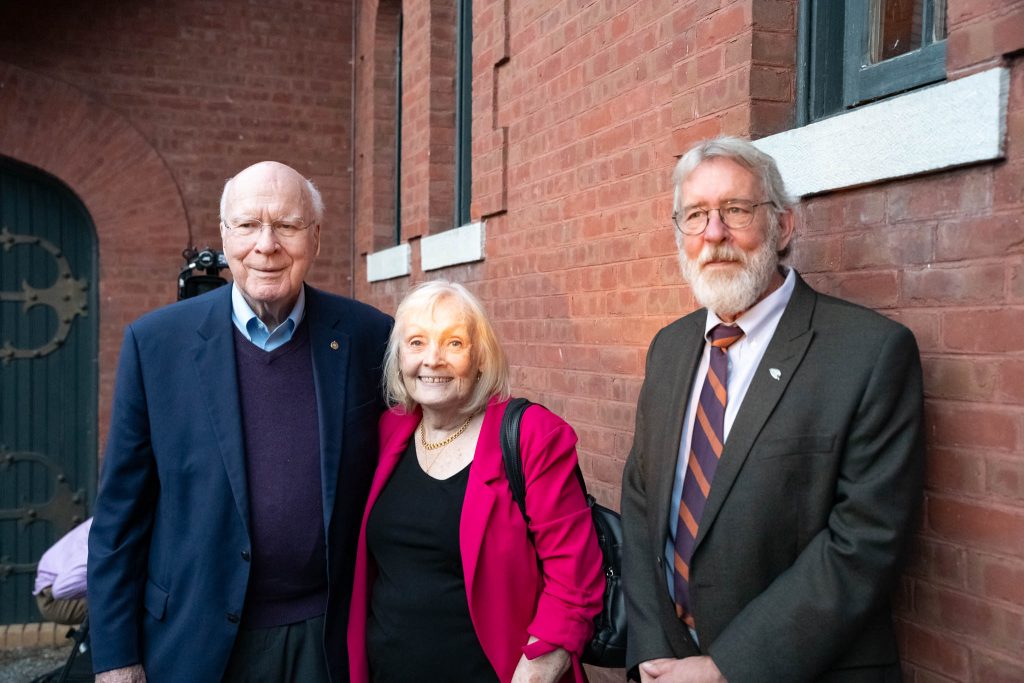Two things: Last week VNRC and many partner organizations honored Senator Patrick Leahy at Shelburne Farms; and, climate expert (and competitive ice climber) Molly Kawahata discusses a crucial component of the climate action movement: getting rid of guilt.
Stay informed, stay connected. Two things!
Honoring Senator Patrick Leahy

VNRC and many of our partner organizations were thrilled to gather last week at Shelburne Farms to honor Senator Patrick Leahy, for his unyielding support of Vermont’s environment and communities during his tenure in public service.
A true environmental champion, Senator Leahy has used his time in office to further conservation efforts, support laws to protect the nation’s clean air and water, and bring much needed funding to protecting Lake Champlain — which he memorably had listed as one of the Great Lakes, a short-lived designation (which ruffled some feathers in the midwest) while securing the funding, and elevated what Leahy maintained, at the end of his speech, is “still a great lake!”
With over 400 people in attendance, the evening allowed us to look back on a truly remarkable legacy, and celebrate the work it has taken to keep Vermont the unique mix of forests, working lands, and downtowns we enjoy today.
Read more and see photos of the event…
How to Let Go of Your Climate Guilt
WATCH: We highly recommend watching this talk (linked above) by Molly Kawahata, Founder of Systemic Impact Strategies and former Obama White House Climate Advisor (and competitive ice climber), and Stephen Posner, Director of Policy with Gund Institute for Environment at the University of Vermont. Kawahata and Gund discuss how to harness psychology to improve our climate communications, refocus the climate crisis around systemic change, and make the climate movement more inclusive. Along with many other important concepts, Kawahata discusses the importance of framing, shaping the narrative around climate, the danger of fear-based storytelling, and the power of positive messaging.




